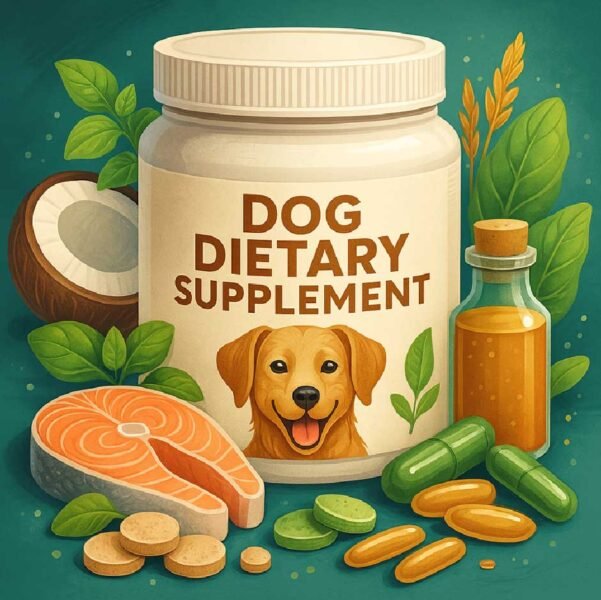Skip to the good bit
ToggleDogs make life better with their goofy grins and eager tail wags, but they can’t tell you when they’re feeling off. You might catch small clues – an itch they can’t shake, a nap that drags on, or fur that’s gone flat.
These quirks could mean your pup needs a little extra nutrition. Supplements can help with things like digestion, joints, or energy. Here’s a rundown of 11 signs your dog might need a boost, plus tips to figure out what’s up and keep your buddy healthy.
1. Scratching Like Crazy
You want your pets to be happy and engaged. Unfortunately, if your dog is itching nonstop, they might not be their usual, playful self.
If fleas aren’t the issue, it could be allergies or a lack of omega-3s. Besides supplements to aid with your dog’s digestion, consider fish oil supplements that might calm their skin and cut down on redness.
Notice when the scratching gets worse – after walks or certain snacks? Chat with your vet to check for triggers like grass, pollen, or something in their food.
2. Flat, Dull Fur
Dull or patchy fur? Biotin or fatty acid supplements can restore shine. Brush daily to monitor changes and rule out seasonal shedding. Check their food – cheap diets may lack skin nutrients.
3. Super Sleepy
If your dog used to zoom around but now flops on the couch all day, they might be low on B vitamins or iron. A supplement could get them moving again.
Think about when they started slowing down – new house, loud neighbors, or maybe a change in routine? Since tiredness can also mean they’re sick, ask your vet to dig into it.
4. Upset Stomach
Frequent gas, diarrhea, or vomiting? Probiotic or prebiotic supplements can calm your dog’s tummy. Note their diet to spot triggers like dairy or chicken.
5. Creaky Joints
It’s tough seeing your dog, especially an older one, hobble or hesitate to jump. Supplements with glucosamine or chondroitin can help their joints move smoothly.
Try short walks to keep them loose without overdoing it. Ask your vet if a few extra pounds are making their joints work harder than they should.
6. Smelly Breath
Even the most adorable pets can have bad breath. In fact, strong dog breath might signal dental or gut issues. Enzyme or probiotic supplements can help. Brush their teeth regularly, and have your vet check for dental problems.
7. Fur Fallout
Shedding’s part of the deal, but if you’re vacuuming fur balls constantly, low zinc or vitamin E could be why. Supplements can help their skin hold onto fur better. Look at their food – fillers don’t do their coat any favors. Grooming lets you spot any weird bald patches early.
8. Nervous Nelly
If your dog jumps at every noise or paces like they’re worried, they might be anxious. Low magnesium or omega-3s could play a part, and supplements might calm them down. Stick to a steady schedule for meals and walks – it’s comforting. A trainer can also teach tricks to ease their nerves.
9. Weird Weight Changes
If your dog’s gaining or losing weight suddenly, fiber or enzyme supplements might help digestion. Track meals and sneaky treats. Your vet can test for thyroid or other issues.
10. Hazy Eyes
Cloudy eyes or bumping into stuff can freak you out as a pet parent. Vitamins C and E in supplements can support their eyes, especially as they age. But don’t just chalk it up to getting old – cataracts or infections need a vet’s attention to sort out.
11. Slow to Heal
If cuts linger or your dog’s often sick, their immune system might need support. Vitamin A, zinc, or probiotic supplements can help. Ensure they eat well and relax, as stress weakens them. Your vet can check for issues slowing healing.
Next Steps
Seeing these signs? Pay attention to when they happened and what’s new in your dog’s world. A solid diet is the starting point, but supplements can patch up specific weak spots.
Talk to your vet before adding anything to make sure it’s a good match. Keep an eye on your pup, and you’ll help them stay happy and full of life. For a trusted source of high-quality supplements, check out Mighty Munch.







